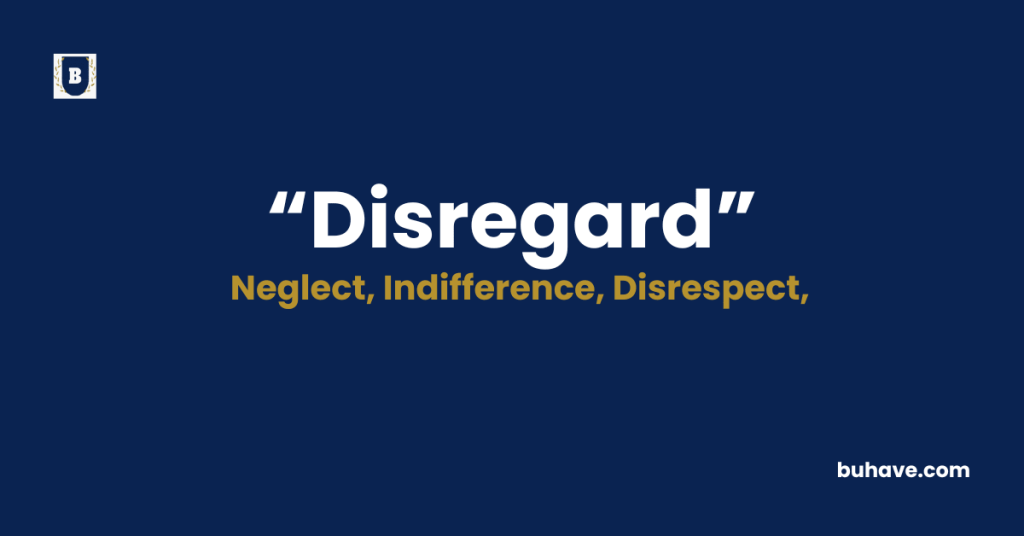The word ‘Disregard’ (Noun) refers to a lack of attention, care, or consideration for something or someone. In this guide, you’ll learn the full definition, synonyms, antonyms, etymology, and real-life examples of how to use ‘Disregard’ correctly in sentences.
Disregard Explained in Depth
A complete and detailed guide to the word ‘Disregard’ including meaning, definition, examples, etymology, synonyms, and antonyms.
Meanings of Disregard
“Disregard” means to ignore, overlook, or pay no attention to something, especially something that should be considered important or relevant.
Definition
Disregard is defined as the act of treating something as unworthy of attention. It can describe deliberate neglect, indifference, or dismissal of facts, rules, people, or feelings.
Etymology
The word “disregard” is formed from the prefix dis- meaning “not” or “opposite of,” and the word regard, which comes from Old French regarder meaning “to watch” or “to take notice of.” Combined, it literally means “not to take notice of.”
Example Sentences
- His blatant disregard for safety protocols led to serious consequences.
- She chose to disregard the warning signs and continued forward.
- The company’s disregard for environmental concerns drew criticism.
Disregard Synonyms
- Neglect
- Ignore
- Overlook
- Dismiss
- Indifference
- Contempt
- Scorn
- Inattention
- Carelessness
- Disdain
Disregard Antonyms
- Attention
- Respect
- Consideration
- Regard
- Concern
- Care
- Acknowledgment
- Recognition
- Mindfulness
- Notice
FAQs about Disregard
Here are some frequently asked questions (FAQs) about the word “Disregard”
Is “disregard” always negative?
Generally, yes. It often suggests a lack of care or respect, especially when something important is being ignored.
What is the difference between “disregard” and “ignore“?
“Disregard” often implies deliberate neglect or contempt, while “ignore” can mean simply not noticing or consciously choosing not to respond.
Can disregard have legal or professional consequences?
Yes. Disregard for rules, laws, or duties in professional settings can lead to disciplinary action or legal penalties.
Explore more D words

















